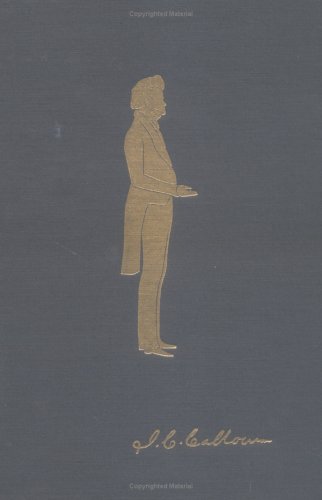Documentary History of the U.
1 total work
The Papers of John C. Calhoun, Volume XXVIII is the final volume in a distinguished documentary edition, the first volume of which was published more than fifty years ago. While identical to others in the series in terms of typeface, binding, and letterpress printing, this volume does not contain any of John C. Calhoun's personal papers, rather it features Calhoun's only formal, scholarly writings on political science and political philosophy. ""A Disquisition on Government"" is an examination of the first principles of political science, much in the model of Aristotle's Politics or Baron Montesquieu's Spirit of the Laws. It examines basic principles of politics, including concepts of sovereignty and personal liberty and the relationships between states and nations. ""A Discourse on the Constitution and Government of the United States"" is a focused study of American political thought and constitutional history since the ratification of the Constitution. It pays particular attention to antifederalist views of the Constitution, the Virginia and Kentucky Resolutions of the 1790s, and the Bill of Rights, the first ten amendments to the Constitution. Comparable to the Federalist, Calhoun's ""Discourse"" articulates a southern-based, states' rights interpretation of the Constitution and examines the course of American political history from the viewpoint of the southern statesman. Calhoun began writing the essays around 1845. His ""Disquisition"" was near final form at the time of his death, but the ""Discourse"" was still an unpolished draft. A year after Calhoun's death in 1850, Richard Kenner Cralle, a former secretary in the Department of State and a friend of Calhoun's, was entrusted by the Calhoun heirs to edit the essays for publication. Since the Cralle edition, it has been assumed that the two essays were separate works. However, as the Calhoun Papers staff prepared the concluding volume of letters, speeches, and remarks, they discovered evidence that Calhoun had intended the two essays to be a single, unified work of political theory and a critical examination of America's remarkable experiment in republican government. Whether published separately or together, these essays are among the classical texts of American political thought.
